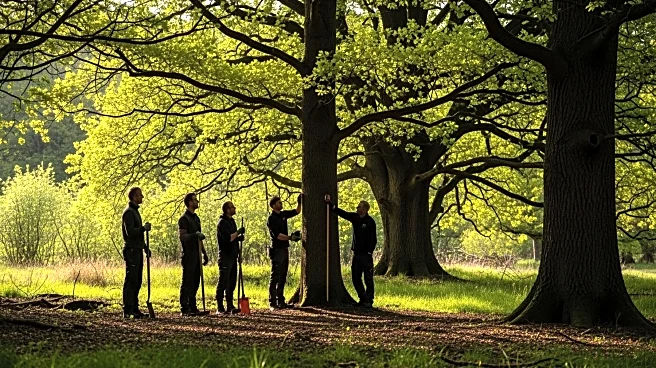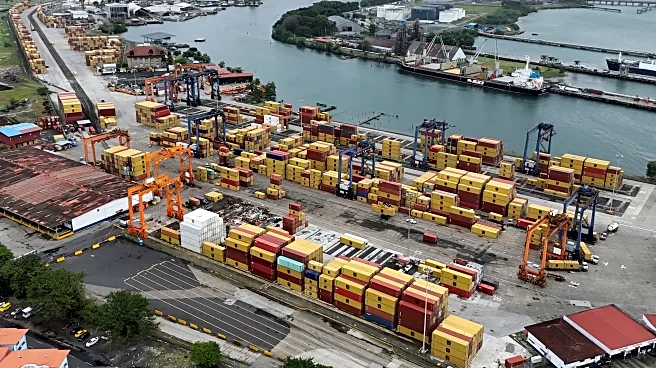What's Happening?
A group of Icelandic foresters from Land og skógur visited Glen Nant oakwoods to gain insights for their forest conservation and restoration programs. The visit was guided by Stuart Findlay, FLS’ West
Region Assistant Operations Manager, who showcased the diversity and historical significance of the native woodland. Iceland, historically more forested, has been working on reclaiming lost native woodlands and creating diverse forests for various purposes, including timber yields and carbon sequestration. The warming climate has made it feasible for oak, a non-native species to Iceland, to grow, prompting the foresters to trial oak planting on a small scale. The visit to Glen Nant was inspirational for the Icelandic team, who took acorns back to Iceland to aid their efforts.
Why It's Important?
The visit underscores the importance of international collaboration in forestry conservation, especially as climate change alters the viability of certain species in new regions. Iceland's initiative to restore its native woodlands and trial non-native species like oak reflects a broader trend of adapting forestry practices to changing environmental conditions. This effort not only aims to restore ecological balance but also to enhance timber production and carbon sequestration, contributing to global climate change mitigation efforts. The exchange of knowledge and resources, such as the acorns from Glen Nant, highlights the potential for cross-border cooperation in environmental conservation.
What's Next?
The Icelandic foresters plan to continue their large-scale tree planting initiatives, incorporating insights gained from their visit to Glen Nant. The acorns collected during the visit will be planted in Iceland, contributing to the long-term goal of establishing mixed forests with occasional oak groves. This ongoing effort will be monitored to assess the viability of oak in Iceland's changing climate. Additionally, the collaboration may lead to further exchanges and partnerships between Icelandic and Scottish forestry experts, fostering a shared commitment to woodland restoration and conservation.
Beyond the Headlines
The visit highlights the cultural and historical dimensions of forestry, as Iceland seeks to reclaim its lost woodlands that were heavily impacted by early Viking settlement and livestock grazing. The initiative to restore these forests not only addresses ecological concerns but also revives a part of Iceland's natural heritage. The warming climate's role in enabling oak growth in Iceland presents both opportunities and challenges, as it may lead to shifts in local biodiversity and forest composition. This development prompts discussions on the ethical implications of introducing non-native species and the long-term impacts on local ecosystems.









